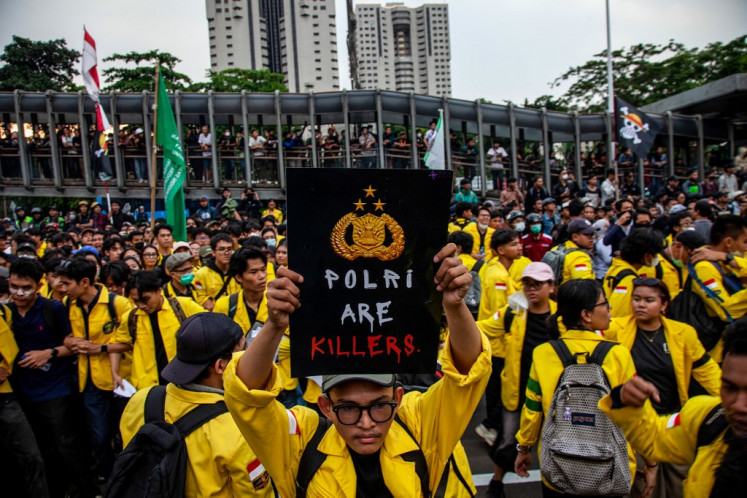Popular Reads
Top Results
Can't find what you're looking for?
View all search resultsPopular Reads
Top Results
Can't find what you're looking for?
View all search results‘Culture of silence’ hinders reporting of violence
The number of incidents of violence against women in Indonesia is not easy to calculate as most victims want to protect their privacy, according to a government statistician
Change text size
Gift Premium Articles
to Anyone
T
he number of incidents of violence against women in Indonesia is not easy to calculate as most victims want to protect their privacy, according to a government statistician.
“Violence against women remains hidden behind a culture of silence. Some people still consider violence an accepted behavior,” M. Sairi Hasbullah, the social resilience statistics chief at the Central Statistics Agency (BPS), said on Tuesday.
Sairi made his comments on the sidelines of a workshop on multi-country study methodology developed by the World Health Organization (WHO) for collecting reliable data on violence against women.
One report compiled by the BPS as part of the 2006 National Socio-Economic Survey (Susenas) said that 3.07 percent of Indonesian women had been victims of violence.
Sixty-eight percent of the cases took place at home, 72 percent occurred in rural areas and 55 percent of the cases were perpetrated by husbands in economic straits, the survey said.
“It’s the tip of the iceberg. Due to limitations and methodological differences, the data is not comparable with any international data on violence against women,” Sairi said.
The survey involved women from 68,000 households who were over 18 or married.
Mechelle M. Viernes of the Philippines’ National Statistical Coordination Board (NSCB) agreed that the‘culture of silence’ was the principal obstacle in obtaining accurate figures on violence against women in the region.
The Philippines’ 9th National Demographic and Health Survey (NDHS) in 2008, which for the first time included a women’s safety module (WSM), did not use words such as ‘abuse’ or ‘violence’, Viernes said.
Many victims were reluctant to file reports, she added.
“Even women who wanted to speak about their experiences with domestic violence found it difficult to express their feelings because of shame and fear,” Viernes said.
According to Viernes, the 2008 survey said that 20.1 percent of respondents over 15 had experienced physical violence.










